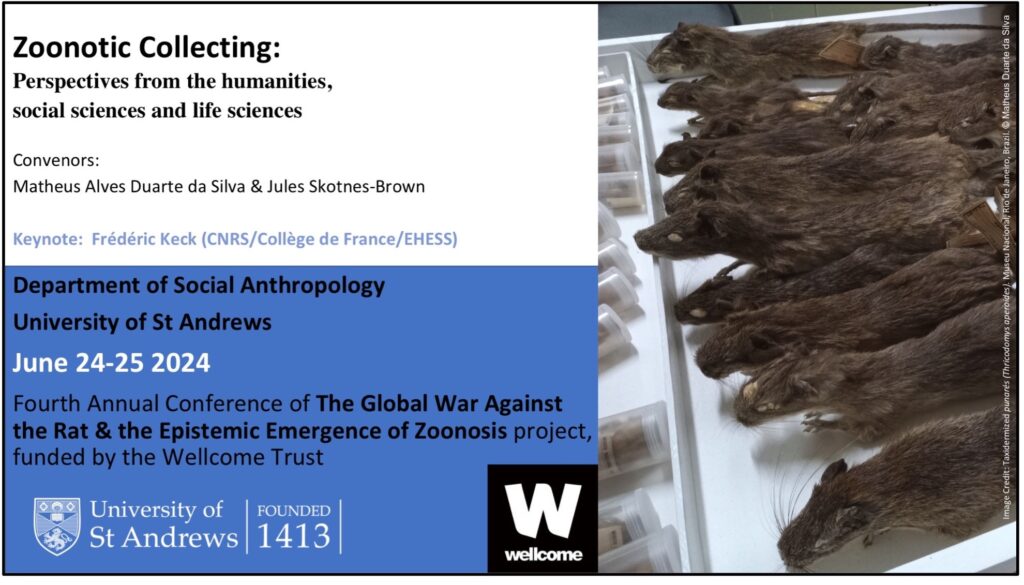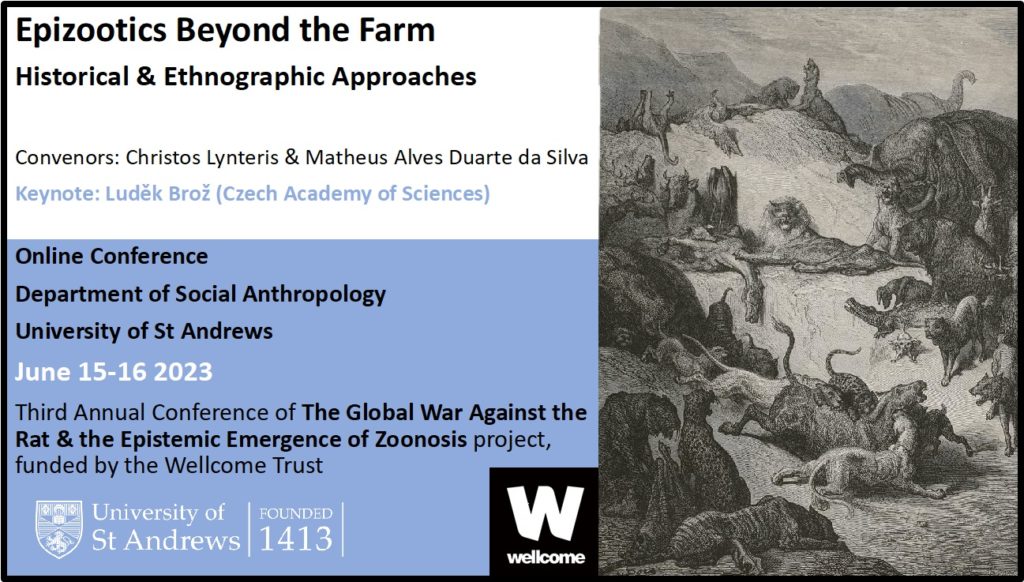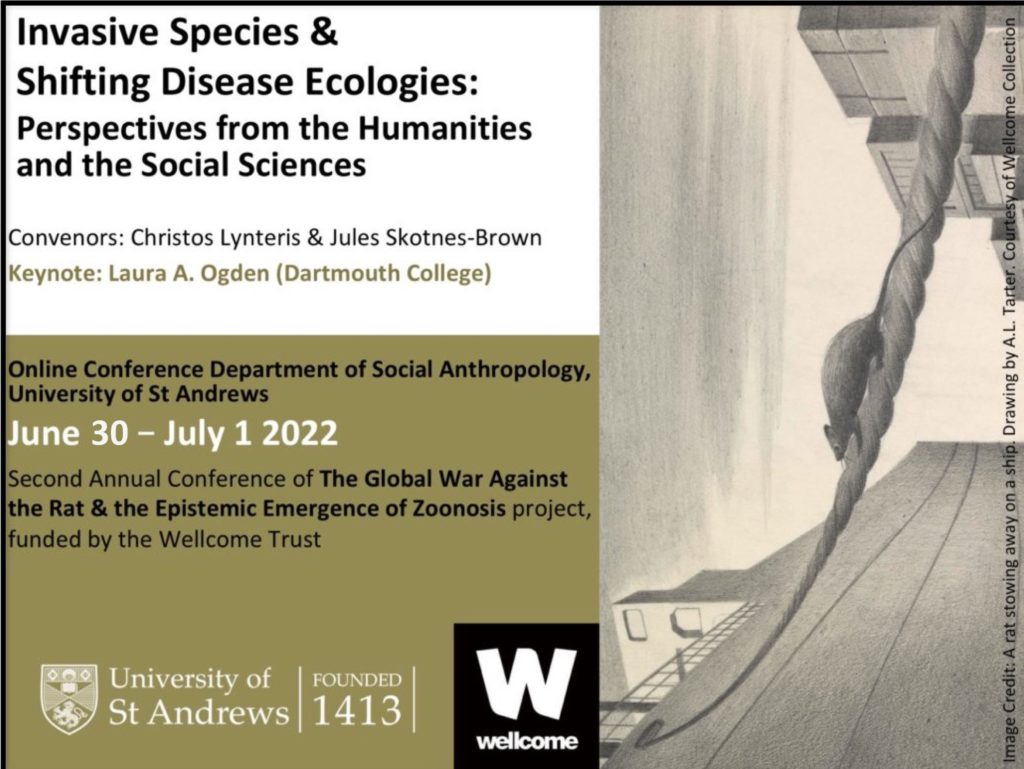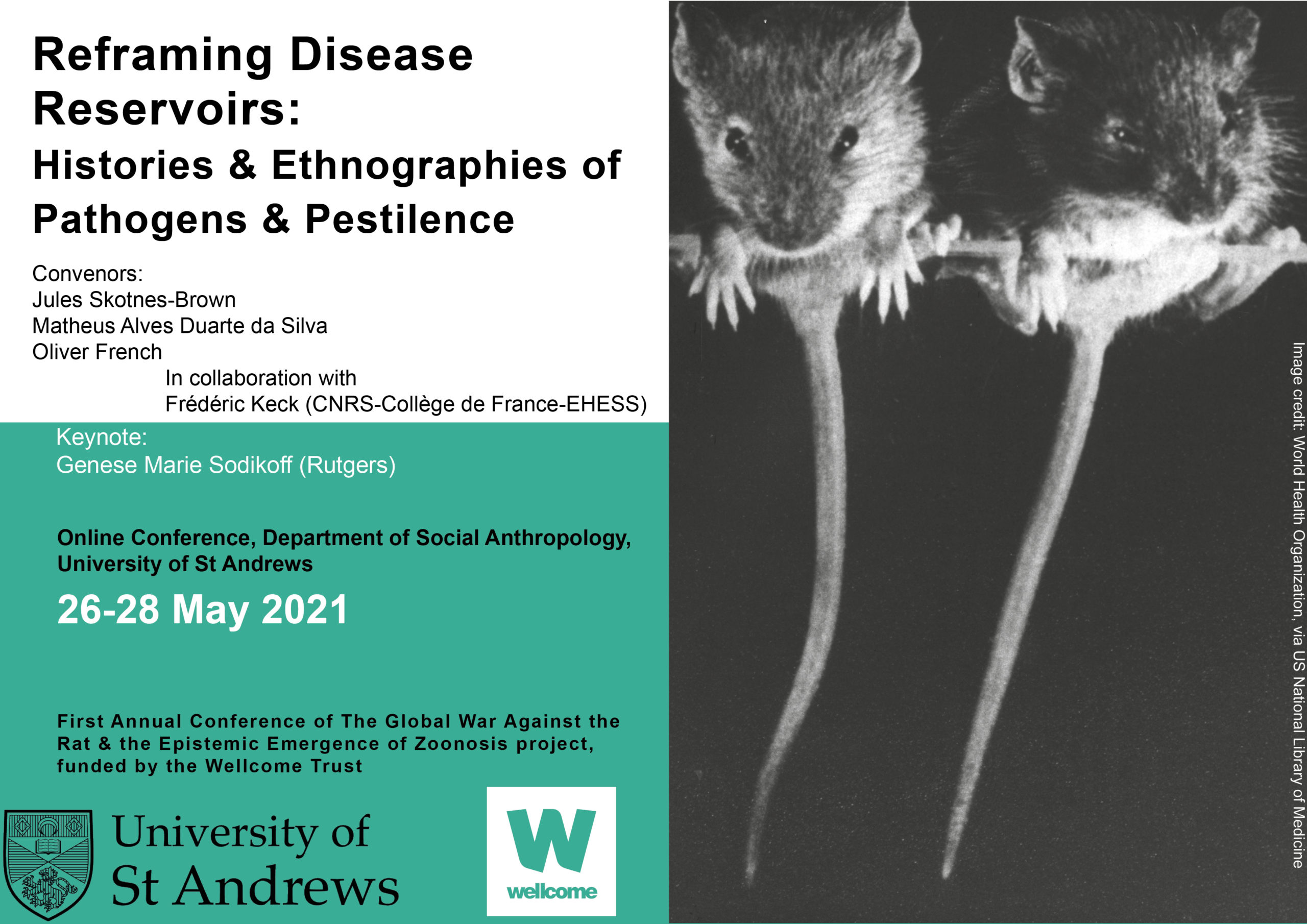Conferences
Zoonosis as a Historical and Anthropological Question
June 16-17 2025
The 5th annual conference of The Global War Against the Rat and the Epistemic Emergence of Zoonosis project. The conference is funded by the Wellcome Trust.

A notion scientifically formulated for the first time in the 1840s, zoonoses, or diseases that are transmissible from animals to humans, pose today a key global challenge. Never before since the high noon of the Third Plague Pandemic, in the early twentieth century, has the transmission of diseases from animals to humans caused so much public controversy, scientific study, economic investment or governmental action. From devastating regional outbreaks like Ebola to pandemics like COVID-19 to the ever-looming threat of an avian flu pandemic, zoonoses bring together epidemiological reasoning, pandemic imaginaries and epidemic governance in ever more intricate and impactful ways.
This renewed interest in zoonosis comes at a time when both historians and anthropologists have been forging new, nuanced approaches to non-human animals. The “animal turn”, debates on animal agency, the role of animals in colonialism, and how to write histories and ethnographies from the perspective of “more-than-humans”, and questions arising out of the surge of multispecies ethnographies have provided both rich and challenging grounds for rethinking history and anthropology.
The final conference of the Wellcome-funded project The Global War Against the Rat will examine how zoonosis gives rise to new historical and anthropological questions and to new perspectives on existing ones. The conference aims to go beyond the particular histories and ethnographies of zoonotic diseases so as to ask how, as both a phenomenon and a biomedical framework, zoonosis may help us to unsettle broader questions or approaches within and between history and anthropology. Such questions will relate to interspecies relations, technologies and techniques, colonial and postcolonial governance, spatialities and temporalities, ontologies and epistemologies, inter-imperial relations, infrastructural materialities and politics, as well as anthropological and historical methods.
Zoonotic Collecting: Perspectives from the Humanities, Social Sciences and Life Sciences.

Epizootics Beyond the Farm: Historical and Ethnographic Approaches

Invasive Species and Shifting Disease Ecologies: Perspectives from the Humanities and the Social Sciences

Reframing Disease Reservoirs: Histories & Ethnographies of Pathogens & Pestilence

